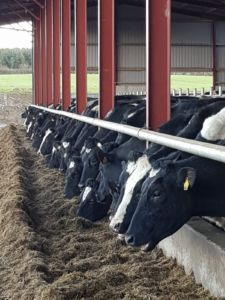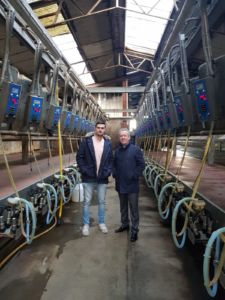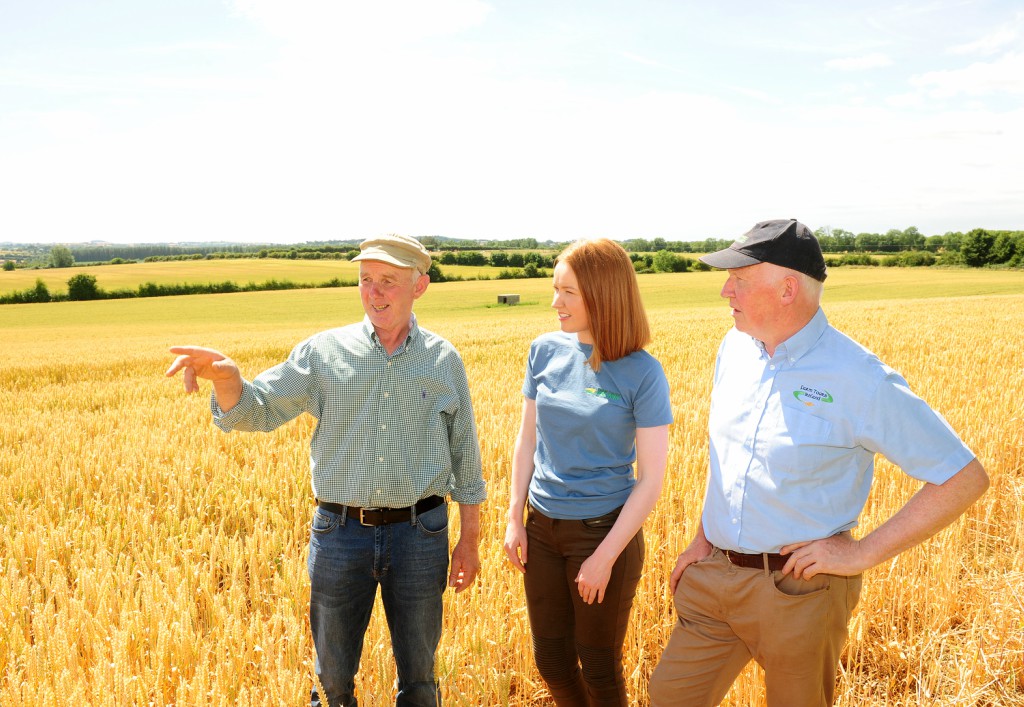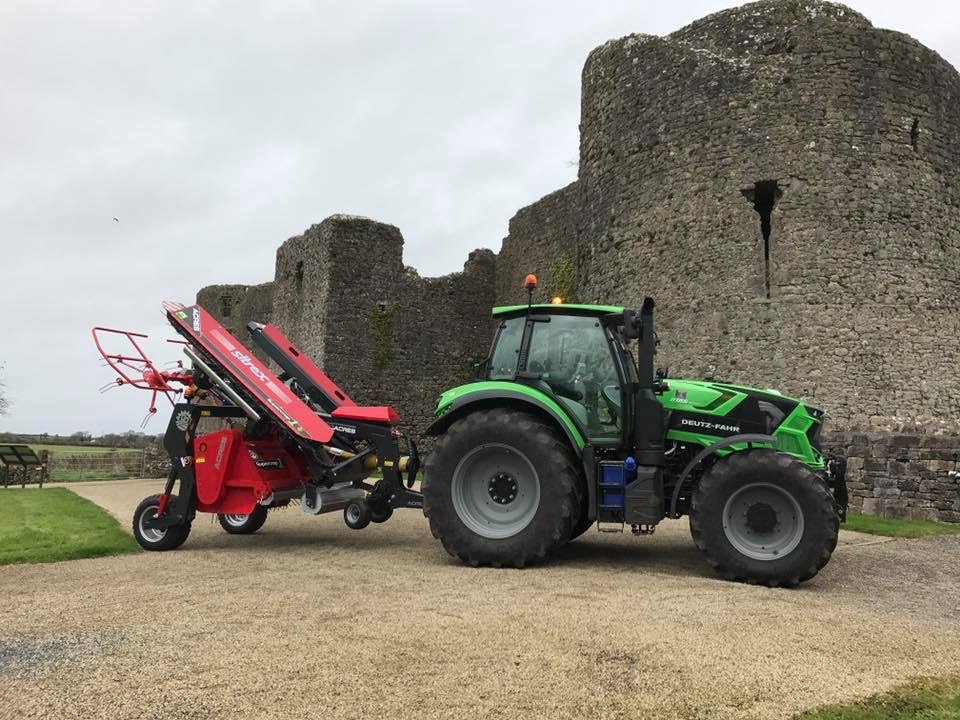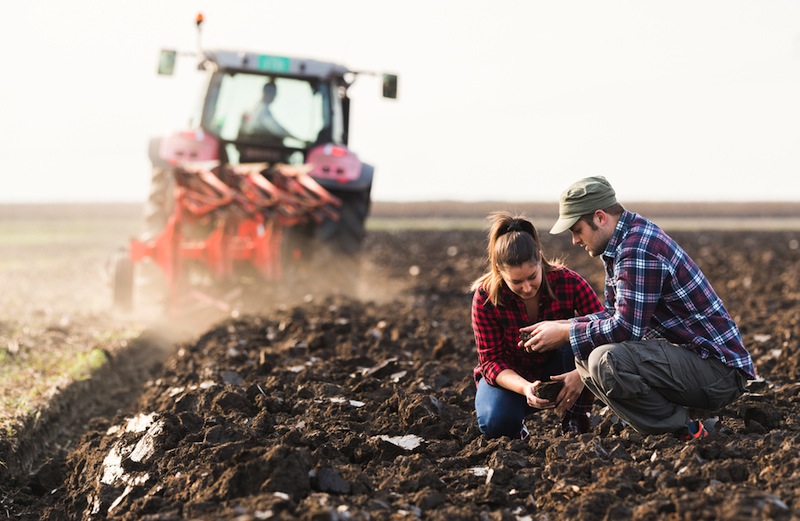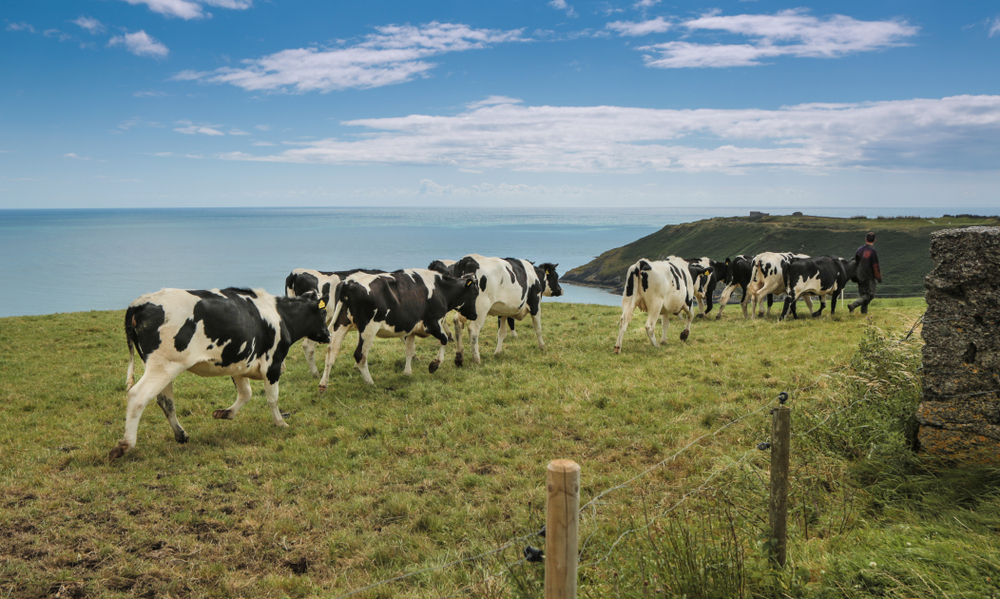Keith Roulston has seen lots of changes to the dairy farming industry in his almost 40 years in business in Donegal. His farm now has 460 cows and he doesn’t see Brexit disrupting his operation.
Do you want to tell me about the history of this farm?
This farm started off with no cows after I came back here from Gurteen College. Prior to the early 1970s we used to milk cows but then we lost a herd of almost 80 cows here in 1976, which I remember well. After that, my father never milked a cow because it had such a damaging effect on him. I came back from Gurteen in 1981 and I bought 30 cows in Dungannon and we went from there and it has taken us to where we are today.
How big an impact do you see Brexit having on you?
For me personally, I’m not one bit bothered by Brexit. Of course the UK is a big market for butter and cheese, but our milk is internationally traded and we’re most interested in what happens in the GDT auction in New Zealand because that is what sets our price. Our milk goes to Lakeland Dairies in Co Cavan and they are trading with counties in North Africa, Asia and Central America, so the UK market isn’t going to be make or break for us. It may cause some inconvenience but I’m not worried in the slightest. The price of milk is going to rise this year. Brexit is a storm in a teacup and it will blow over. It’s just a case of getting the right measures in place that will work.
“Brexit is a storm in a teacup and it will blow over. It’s just a case of getting the right measures in place that will work.”
It will have a bigger impact on the beef trade because there is so much beef leaving here and going straight onto supermarket shelves in the UK. If things with Brexit go wrong, companies in the UK could decide to import from countries like Brazil or Argentina, but it depends mostly on the general public. If they demand for a food supply that is safe and trusted, well then they will continue to buy from here. But if it comes down to price, they may look elsewhere.
Have you had to make any changes to your operation since Brexit was announced?
None at all. We have just carried on as normal. Since 2016, we’ve doubled our output. At the end of our quota in 2015, it was about 1.5 million litres per year, and at the end of December 2018, we put out 3.3 million litres in the previous 12 months, so we’ve actually doubled our production in the time since Brexit was announced.
“No matter how difficult things might seem, especially now with the potential challenges with Brexit, there will always be light at the end of the tunnel.”
Have you spoken to any beef farmers and are they concerned?
Their only concern seems to be that people are trying to scare them by constantly giving them the worst case scenario, but until it goes through no one knows what the implications will be. At the moment, the beef trade is a bit of a disaster and that’s without Brexit. You can barely give cattle away at present, never mind actually selling them. There’s no money in beef at the moment.
For young farmers starting out, are there opportunities for them?
I think there are plenty of opportunities for young farmers today. If you’re willing to work and you have the right focus, then there will always be an opportunity. If I had adopted the ‘wait-and-see’ approach 35 years ago, I’d be sitting here growing old doing nothing. No matter how difficult things might seem, especially now with the potential challenges with Brexit, there will always be light at the end of the tunnel. In the dairy business, it’s continuous investment that is required, and take that from me because I’ve been doing it a very long time.

